Isabel Wilkerson appeared on The Bat Segundo Show #366. Ms. Wilkerson is most recently the author of The Warmth of Other Suns.
Listen: Play in new window | Download
Condition of Mr. Segundo: Warming up to fascinating history.
Author: Isabel Wilkerson
Subjects Discussed: [List forthcoming]
EXCERPT FROM SHOW:
Correspondent: I wanted to ask about one of the key pieces of conflict relating to the Great Migration that fascinated me. You pointed out that the old timers — meaning the African-Americans who had lived in the northern territory before the Great Migration — were harder on the influx of new African-American migrants moving into the northern areas than almost anybody else. The Chicago Defender has this list of dos and don’ts. The endless articles about what you’re supposed to do as a new migrant. I’m curious. Based on your research, to what degree did this conflict — what effect did this have on the progress that came later in the 1960s? Did this deter efforts at unity? You kind of get into it the book. But I wanted to see if your research led to other areas here.
Wilkerson: I think that it was generally a low-grade competition rivalry — and maybe resentment — that really grew out of fear. It grew out of an insecurity. Because the people who were already there in the North were small in number. They had been pioneers from way back. And they finally established themselves in these often hostile and alienating cities. And their rival of basically country cousins in huge waves to the big cities obviously raised questions for them about what was going to happen to them. What was going to happen to this perfectly balanced, well-honed alchemy that they created with the majority of the people in these big cities. And they felt embarrassed by them. They felt shame. They felt resentment. And they often didn’t want to be around them. I must point out though that, while they were most likely to be resentful of them, and to maybe be sneeringly judgmental of them, they were not the ones who were actually hurting them physically in the same way that others were. I mean, when they moved out into other neighborhoods, when they arrived in these big cities, that was when they might be firebombed. Because they were going into a neighborhood where they were not welcome. So the people who were there, there was more a sort of insider resentment and fear that’s very different. But actually, it’s just as painful to the people who were arriving. Because the people who were arriving were like people arriving from any far away place to a new land that they hoped would be better. And they felt very hurt by that. Very hurt. And it actually limited their ability to move about. They couldn’t join certain churches. So it was an in-group stratification that is kind of an inside baseball thing, but kind of human nature. It’s about survival.
Correspondent: It also seems to me to be about class divide. And that’s one aspect of 20th century black history that we really don’t discuss. Going back to the original question of whether an internal class struggle like this, I mean, did it really have a serious deterrent upon advancement?
Wilkerson: I think it did in the beginning stages. You know, while the people were new and untutored into the ways of the North, the people, they were pretty much rejected and not welcome. Over time, like any immigrant group that’s ever come in — and they were immigrants in the true sense of the word. Because they were born in the United States. They were American citizens. They went to another region in order to realize the rights that they were born to. They essentially acted as any immigrant would. And so they went to the people who were there. And they found that it was difficult to make that adjustment. But once they did make the adjustment, they in turn would become as sneeringly judgmental as the people coming behind them. That’s just the way human beings think.
Correspondent: The retrousse noses.
Wilkerson: Yeah, that’s right. Ultimately though, larger forces would intrude. And as a group, they found themselves all hemmed in by the larger economy that didn’t really want to have them. And I wouldn’t say that it impeded progress to that degree. There were rivalries in every group. I think that it certainly didn’t help. It was very disheartening for people who just arrived. It is. Because you’re rejected by your own people. It’s very painful.
Correspondent: Instead of having a polarization effect. To really fight a lot of the racism that was going down. The firebombing and the Cicero riots.
Wilkerson: Exactly.
Correspondent: Well, this is very interesting. Because you cite this 1965 census survey, in which it was revealed that a lot of the migrants moving in had more education — equal sometimes, but often more education — than the native white Northeners.
Wilkerson: Exactly. Which is astounding. I mean, when I saw that, it was just hard to believe. But part of this is remembering the era that we’re talking about. We’re talking about an era in which many of the people were children of the Depression. And many of them had had hard lives, no matter where they were. Many of them were the children or actual immigrants from other places. So the early part of the 20th century was not a time of great enlightenment overall, unfortunately. So life was hard for everybody. But how ironic, actually, that the people who came up in this Great Migration were actually slightly better educated when it came to the numbers. Now that doesn’t mean that we’re not getting the quality. Because the quality of education in the South was markedly unequal clearly. But they had put in the time. They had gone as far as they could. And then they left finally for hopefully a better life in the North and the West. But it’s interesting that the mythology and the misconceptions about these people. Once I began to discover them, I found that that became a big focus of the work that I hadn’t anticipated.
The Bat Segundo Show #366: Isabel Wilkerson (Download MP3)
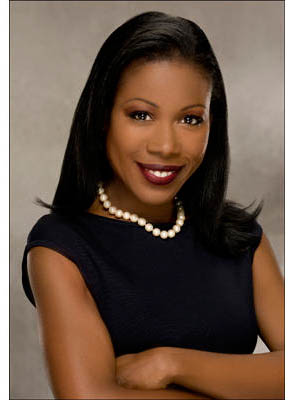
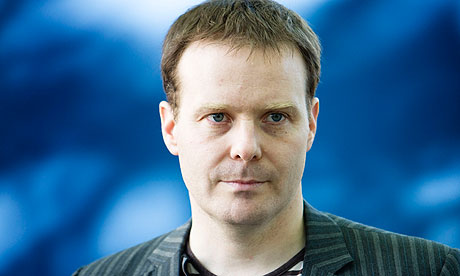

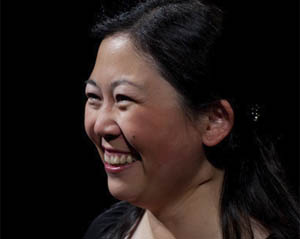
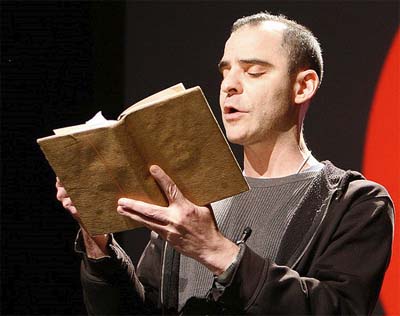
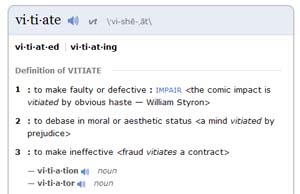 Rakoff: It means to either strengthen or weaken an argument. Which one does it mean?
Rakoff: It means to either strengthen or weaken an argument. Which one does it mean?